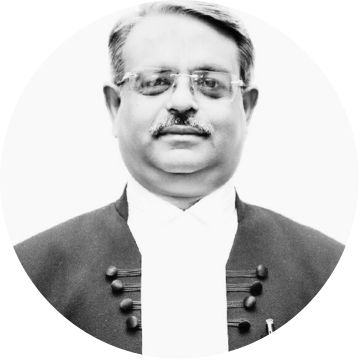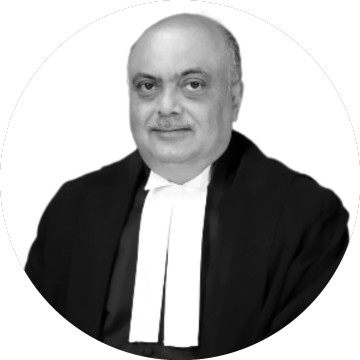Supreme Court: In a criminal appeal filed against the conviction order of a man accused of rape and murder of a ten-year-old minor, passed by the Trial Court and upheld by the Allahabad High Court, the three Judge bench of Abhay S. Oka*, Ahsanuddin Amanullah, and Augustine George Masih, JJ. set aside the conviction, as the accused was not provided with proper legal aid during the trial, which violated his fundamental right to a fair trial under Article of the . Further, the Court issued a series of directives concerning the critical roles of the Public Prosecutor and Legal Aid Counsels in ensuring procedural fairness and safeguarding the fundamental rights of the accused in criminal trials.
Role of the Public Prosecutor
The Court highlighted the role of the Public Prosecutor in ensuring a fair trial under Section of the , which requires the examination of the accused regarding the material circumstances against them. According to sub-Section (5) of Section of the (and also under sub-Section (5) of Section of the ), the Court is entitled to seek the assistance of both the Public Prosecutor and the defense counsel to formulate the questions that should be put to the accused during this examination.
The Court emphasized that the Public Prosecutor has a critical duty to ensure that every trial is conducted fairly and in compliance with the law. In particular, it is the Public Prosecutor’s responsibility to bring to the Court’s attention the requirement that all incriminating material be presented to the accused. This is an essential safeguard in criminal trials, as it allows the accused to respond to the evidence and ensure a fair opportunity to defend themselves.
Therefore, the Public Prosecutor must be present during the examination of the accused, to assist the Court in fulfilling its duty to ensure fairness. The Court noted that any failure in this regard, where incriminating material is not properly put to the accused, undermines the integrity of the trial and the accused’s right to a fair hearing.
Failure to provide legal aid to the accused
The Court also addressed the failure of the State to provide timely legal aid to the accused, raising serious concerns about both the timeliness and quality of the legal assistance.
The Court emphasized that the right to legal aid is a fundamental right of the accused, guaranteed by Article of the , which ensures the right to life and personal liberty. This right is not merely procedural but a cornerstone of ensuring a fair trial and access to justice for all, particularly those who cannot afford legal representation.
Under Section of the , every accused has the right to be defended by a pleader of their choice. If the accused does not have sufficient means to engage an advocate, Section of the comes into play, mandating the provision of free legal aid. This ensures that those without financial resources are not deprived of legal representation.
The Court further highlighted the responsibility of the Trial Court under Section of the to inform the accused about their right to free legal aid. This duty arises when the accused has not engaged an advocate on their own or lacks the means to do so. The Trial Court must proactively ensure that the accused is aware of this right and can access legal aid, as it is integral to ensuring a fair trial and protecting the rights of the accused under Article 21. Thus, under Section of the , it is the duty of the Court to ensure that a legal aid lawyer is appointed to espouse the cause of the accused.
The Court expressed serious concern regarding the lack of legal representation for the accused at critical stages of the trial. It noted that more than one prosecution witness had their evidence recorded in the absence of the legal aid advocate, which is a violation of the accused’s right to a fair trial. Specifically, at the stage of framing the charge, the accused was not represented by an advocate, further undermining the fairness of the proceedings.
One of the most alarming observations made by the Court was that the examination-in-chief of the victim’s father was allowed to be recorded without the accused having access to legal representation. The Court noted that this deprived the accused of a very valuable right—the right to object to the questions posed during the examination-in-chief.
The Court further emphasized that without an advocate, the accused was also denied the right to object to leading questions, which could potentially influence the testimony in favor of the prosecution. The absence of legal representation at this stage severely limited the accused’s ability to participate in their defense, further compromising the fairness of the trial.
The Court also observed that the cross-examination of the prosecution witnesses, particularly the victim’s father, was not up to the mark. Several crucial questions that would normally have been posed in a proper cross-examination were not asked, likely due to the absence of competent legal representation. This gap in the defense’s ability to effectively cross-examine witnesses contributed to the weakness in the accused’s defense.
Thus, the Court held the following:
It is the duty of the Court to ensure that proper legal aid is provided to an accused;
When an accused is not represented by an advocate, it is the duty of every Public Prosecutor to point out to the Court the requirement of providing him with free legal aid.
Even if the Court is inclined to frame charges or record examination-in-chief of the prosecution witnesses in a case where the accused has not engaged any advocate, it is incumbent upon the Public Prosecutor to request the Court not to proceed without offering legal aid to the accused;
It is the duty of the Public Prosecutor to assist the Trial Court in recording the statement of the accused under Section . If the Court omits to put any material circumstance brought on record against the accused, the Public Prosecutor must bring it to the notice of the Court while the examination of the accused is being recorded.
An accused who is not represented by an advocate is entitled to free legal aid at all material stages starting from remand. At all material stages, including the stage of framing the charge, recording the evidence, etc., it is the duty of the Court to make the accused aware of his right to get free legal aid.
Referring to Anokhilal v. State of M.P, , the Court said that in all the cases where there is a possibility of a life sentence or death sentence, only those advocates who have put in a minimum of ten years of practice on the criminal side should be considered to be appointed as amicus curiae or as a legal aid advocate.
The Court directed the Legal Services Authorities at all levels to give proper training to the newly appointed legal aid advocates not only by conducting lectures but also by allowing them to work with senior members of the Bar in a requisite number of trials.
The State Legal Services Authorities was directed to issue directions to the Legal Services Authorities at all levels to monitor the work of the legal aid advocate and shall ensure that the legal aid advocates attend the court regularly and punctually when the cases entrusted to them are fixed;
It is necessary to ensure that the same legal aid advocate is continued throughout the trial unless there are compelling reasons to do so or unless the accused appoints an advocate of his choice;
In the cases where the offences are of a very serious nature and complicated legal and factual issues are involved, the Court, instead of appointing an empanelled legal aid advocate, may appoint a senior member of the Bar who has a vast experience of conducting trials to espouse the cause of the accused so that the accused gets best possible legal assistance;
The right of the accused to defend himself in a criminal trial is guaranteed by Article of the . He is entitled to a fair trial.
There is a constitutional right to legal aid, that right will be effective only if the legal aid provided is of a good quality.
CASE DETAILS
| Citation: Criminal Appeal No. 771 of 2024 Appellants : Ashok Respondents : State of UP | Advocates who appeared in this case For Petitioner(s): For Respondent(s): |
CORAM :

Augustine George Masih, J.
Buy Code of Criminal Procedure, 1973
Buy Constitution of India
The post appeared first on .

